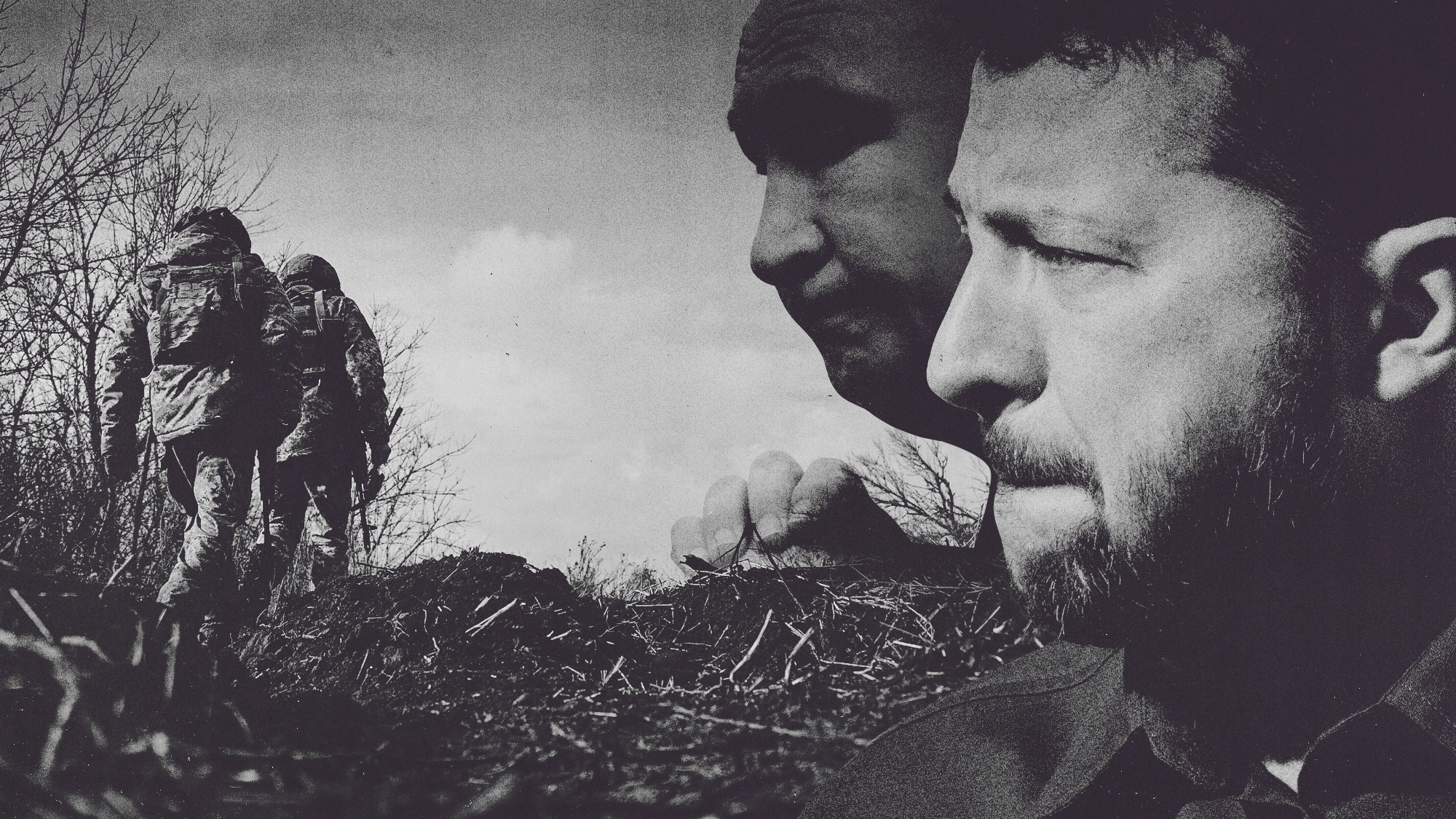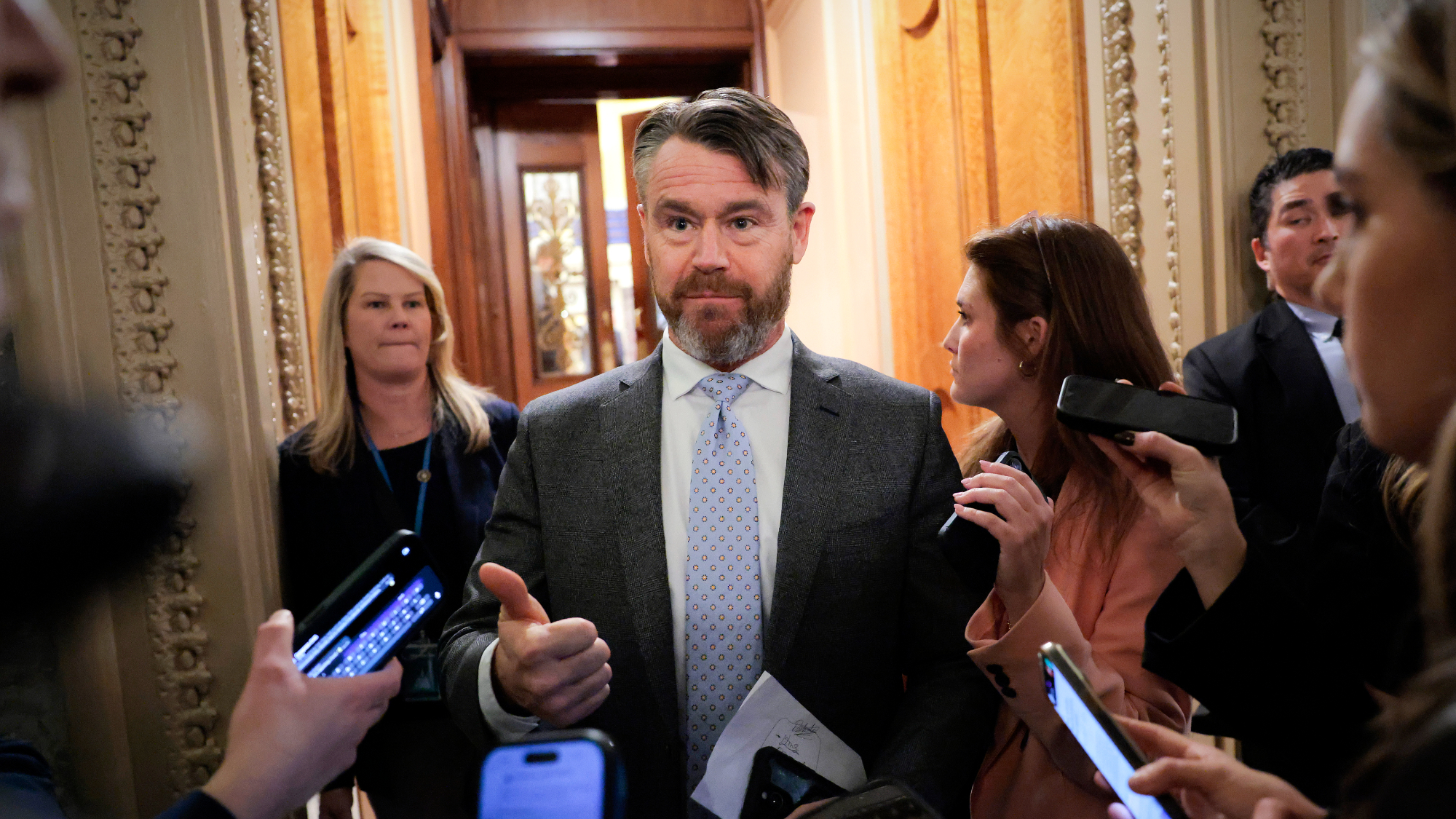What comes next for Ukraine amid the war's 'stalemate'?
The country's top general recently claimed that the war with Russia had reached a standstill


A free daily email with the biggest news stories of the day – and the best features from TheWeek.com
You are now subscribed
Your newsletter sign-up was successful
It's been almost two years since Russia launched a "special military operation" to invade Ukraine in an effort to claim its sovereign territory. While Russia has laid waste to much of Ukraine, the country has fought back with a strong counteroffensive of its own, and now one top official has claimed that the conflict is more-or-less at a standstill.
General Valery Zaluzhny, the commander in chief of Ukraine's armed forces, told The Economist last week that the war had "reached the level of technology that puts us into a stalemate." Zaluzhny predicted there would "most likely be no deep and beautiful breakthrough" unless a significant technological change occurred on the battlefield. "The simple fact is that we see everything the enemy is doing and they see everything we are doing," Zaluzhny added.
Given the general's comments, it seems that both sides are settling in for a fight that could drag on for many more years. But while his acknowledgment of a stalemate "is simply a recognition, in some senses, of the reality on the ground," ABC News reported, it could begin to change the course of the war in a way that has previously been unseen — and could also be a catalyst for Western countries to rethink their years-long support of Ukraine's fight against Russia.
The Week
Escape your echo chamber. Get the facts behind the news, plus analysis from multiple perspectives.

Sign up for The Week's Free Newsletters
From our morning news briefing to a weekly Good News Newsletter, get the best of The Week delivered directly to your inbox.
From our morning news briefing to a weekly Good News Newsletter, get the best of The Week delivered directly to your inbox.
What the commentators said
Part of the reason for the deadlock is that Ukraine hasn't had the success it had hoped for in its counteroffensive. This is partially because Ukraine "was set up to underdeliver on unreasonable expectations of a massive territorial gain," Alina Polyakova, president of the Center for European Policy Analysis, told The Washington Post. But this didn't happen, as Ukraine "has not done a good job of executing a NATO-style combined-arms offensive" and Western allies have "not given them enough weapons to break through the Russian fortifications," Max Boot wrote at the Post.
Many in Ukraine appear to have placed the blame more on the issues with Western aid than the army's fighting tactics themselves. "I cannot begin to tell you how it feels being here in Ukraine, talking to people whose ability to fight depends on the decisions that are being made somewhere so far away," Kira Rudik, a member of Ukraine's parliament, told The Hill. Rudik added that if the U.S. Congress were to cut off Ukrainian aid as the result of a stalemate, it would "have such a huge, gigantic influence on the real life of real people here" but not affect Congress.
If anything, Zaluzhny's declaration of a stalemate "is not a revelation or admission. It is an intervention on behalf of Ukraine, a call for honesty," Jade McGlynn wrote for CNN. It is also a reminder that "Ukraine is not the intransigent party here" and that it is "not Ukraine that is desperate to continue war despite plentiful options to stop the bloodshed — it is Russia," McGlynn added.
What next?
As a result of Zaluzhny's comments, "many will argue that, with the failure of this counteroffensive, it's time [for Ukraine] to cut a deal with the Kremlin," Boot said in the Post. However, this is something that the Kremlin and Russian President Vladimir Putin are unlikely to want, especially because both sides have since cast doubt on whether the war is really at a stalemate.
A free daily email with the biggest news stories of the day – and the best features from TheWeek.com
Kremlin spokesperson Dmitry Peskov said the war "has not reached a stalemate," per Reuters, instead claiming that Russia would achieve all of its battlefield goals. Peskov added that "even talking about some sort of prospect of victory on the battlefield is absurd [for Ukraine to do]." He also insinuated that Russia could use Ukraine's claims of a stalemate to bolster its military might.
There doesn't seem to be a universal agreement on the Ukrainian side of the table, either, as the country's leadership appears to have broken from Zaluzhny's stalemate comments. When asked if he was rejecting Zaluzhny's characterization of the conflict, Ukrainian President Volodymyr Zelenskyy told NBC News, "the situation is difficult, I don’t think this is a stalemate. It's a check on the Russian army."
One of Zelenskyy's top advisers, Ihor Zhovkva, questioned whether Zaluzhny should have made many remarks at all. In remarks per the Kyiv Independent, Zhovkva said Ukraine should refrain from making battlefield remarks because "we make the aggressor's job easier," adding that the claim of a stalemate caused unnecessary panic in Ukraine.
Justin Klawans has worked as a staff writer at The Week since 2022. He began his career covering local news before joining Newsweek as a breaking news reporter, where he wrote about politics, national and global affairs, business, crime, sports, film, television and other news. Justin has also freelanced for outlets including Collider and United Press International.
-
 What to know before filing your own taxes for the first time
What to know before filing your own taxes for the first timethe explainer Tackle this financial milestone with confidence
-
 The biggest box office flops of the 21st century
The biggest box office flops of the 21st centuryin depth Unnecessary remakes and turgid, expensive CGI-fests highlight this list of these most notorious box-office losers
-
 What are the best investments for beginners?
What are the best investments for beginners?The Explainer Stocks and ETFs and bonds, oh my
-
 How are Democrats turning DOJ lemons into partisan lemonade?
How are Democrats turning DOJ lemons into partisan lemonade?TODAY’S BIG QUESTION As the Trump administration continues to try — and fail — at indicting its political enemies, Democratic lawmakers have begun seizing the moment for themselves
-
 ‘The mark’s significance is psychological, if that’
‘The mark’s significance is psychological, if that’Instant Opinion Opinion, comment and editorials of the day
-
 How did ‘wine moms’ become the face of anti-ICE protests?
How did ‘wine moms’ become the face of anti-ICE protests?Today’s Big Question Women lead the resistance to Trump’s deportations
-
 How are Democrats trying to reform ICE?
How are Democrats trying to reform ICE?Today’s Big Question Democratic leadership has put forth several demands for the agency
-
 Why is Tulsi Gabbard trying to relitigate the 2020 election now?
Why is Tulsi Gabbard trying to relitigate the 2020 election now?Today's Big Question Trump has never conceded his loss that year
-
 Will Democrats impeach Kristi Noem?
Will Democrats impeach Kristi Noem?Today’s Big Question Centrists, lefty activists also debate abolishing ICE
-
 Trump, Senate GOP block Venezuela war powers vote
Trump, Senate GOP block Venezuela war powers voteSpeed Read Two Republicans senators flipped their vote back amid GOP pressure
-
 Do oil companies really want to invest in Venezuela?
Do oil companies really want to invest in Venezuela?Today’s Big Question Trump claims control over crude reserves, but challenges loom
